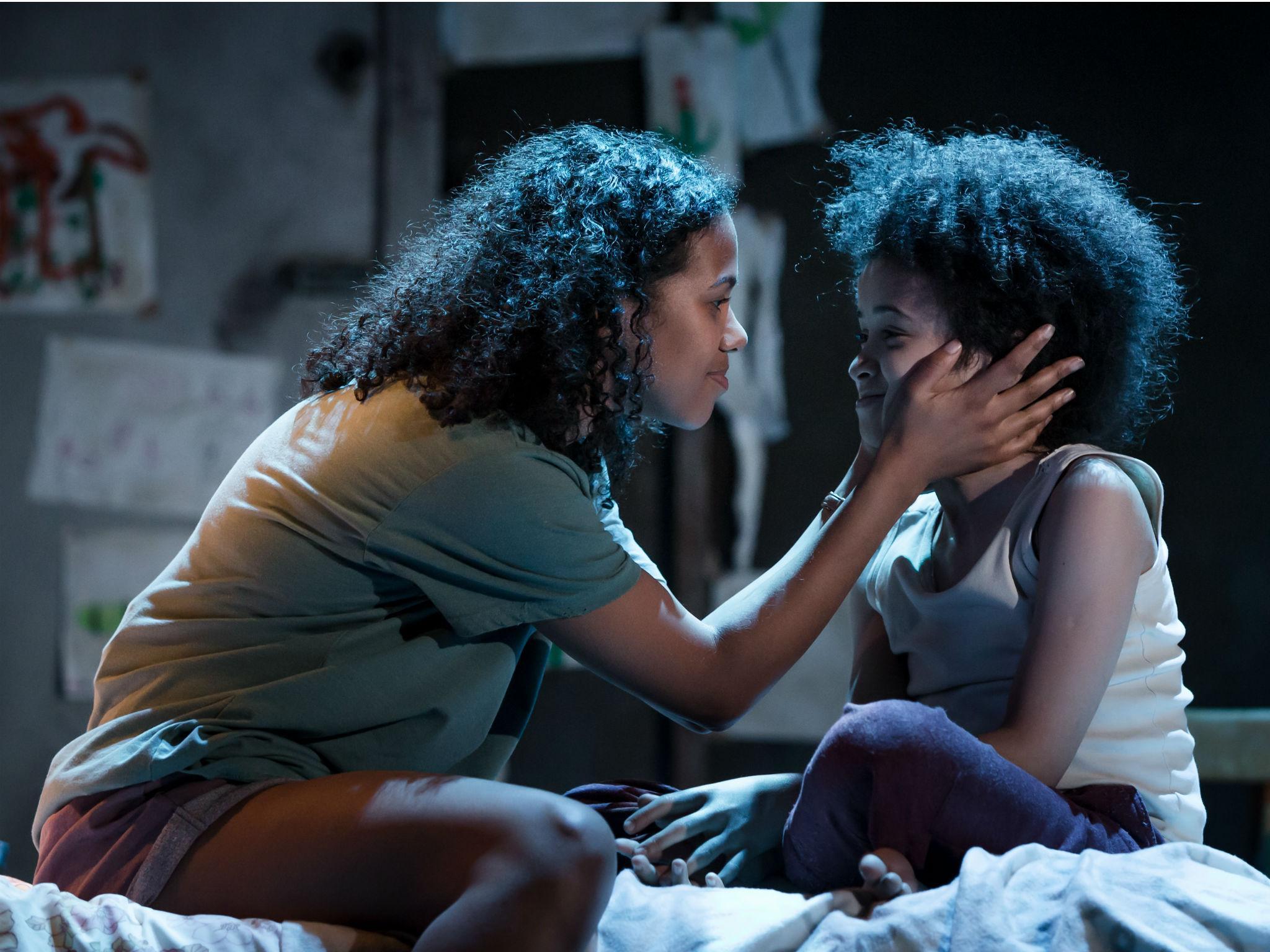Room, Theatre Royal, Stratford East, London, review: Both prurience and sentimentality are admirably kept at bay
Emma Donoghue has adapted her book ‘Room’ – which was triggered by the Josef Fritzl case in Austria – for the stage

It's been a bestselling novel and an Oscar-winning film. Now Emma Donoghue has adapted her book Room into a piece of theatre, directed by Cora Bissett in a co-production between the Theatre Royal, Stratford East and the Abbey Theatre, Dublin, that features songs by Bissett and Kathryn Joseph.
This is the story, triggered by the Josef Fritzl case in Austria, whose twist is that it is told from the perspective of the five-year-old boy, Jack, who has been imprisoned with Ma for all his life in a small secured outbuilding. He doesn't know his relationship with Old Nick and is in the wardrobe supposedly asleep when the latter makes his nightly visits to drop off supplies and rape Ma.
A stage version of this kidnap situation can, in the first half, literally confine mother and child to an 11ftx11ft space and, in so doing, heighten our sense of the love and imaginative resourcefulness with which Ma tries to keep Jack healthy and happy via a routine of physical and mental exercises.
Because he has no other frame of reference, the room, with its dowdy rudimentary fittings, is for Jack a universe quivering with possibilities. So the space becomes a metaphor. To protect him from the harsh truth, Ma has allowed the boy to believe that the rest of the world exists only on television. But now Old Nick has lost his job and has started to cut off the power supply. Reckoning that their lives are in danger, Ma is forced to give Jack a crash course on the reality of their plight and to assign him a key role in her rescue plan.
We first see the cramped dimensions of their quarters here in an overhead shot before Lily Arnold's design presents us with a room that is able to swivel round, sealed off by a transparent scrim adorned with the child's spindly drawings of the objects (“plant”, “lamp” etc) he thinks of as friends. Freed from naturalism, this adaptation splits the role of Jack between two actors. There's Little Jack, the actual child whose questioning honesty and emotional candour about every stage of his experience, as he moves from the seeming security of the regime in the room to a Martian bafflement at the enormities of the outside world, was registered with remarkable truthfulness by Harrison Wilding at the performance I saw. And there's the identically dressed Big Jack, charmingly played by buff adult actor Fela Lufadeju, who voices the character's inner thoughts.
The songs aren't particularly distinguished and there are a couple in which Witney White's excellent Ma gets to bare her soul in a way that violates too far the contract, in previous treatments, that we are seeing her mainly from the child's perspective. “I am not inside myself/I am watching someone else/Half of me is live/And half is dead” she sings, as Big Jack, sensing some threat on the other side of the louvred wardrobe doors, agitatedly counts the squeakings of the bed springs.
On the other hand, it's greatly to the credit of the score that it never simplifies or renders soppy the deeply intimate, but necessarily difficult bond between mother and son that White and Wilding evoke so beautifully. Love is the key to their survival, of course, but we’re never led to underestimate how fraught it is with difficulties.
The musical mode perhaps makes a touch too smooth and uplifting the finale in which the pair revisit the site of the room on the day before it's due to be destroyed and Jack is able to say goodbye to the lamp and plant et al that once peopled his cosmos and now loom puppet-like towards him. But while no one would mistake Room for being the most brutally stark of low-downs about what it would be like to go through this kind of hellish situation, the empathy and bite are keen.
Take the television interview to which Ma submits. The sleek interviewer glides from showing inept priorities (implying that the fact that Jack is still being breastfed is the most note-worthy detail of the ordeal) to drawing blood when she wonders why Ma did not consider the option of persuading Old Nick to abandon Jack as a baby in the outside world, thus giving the child the chance of adoption and a normal life. Both prurience and sentimentality are admirably kept at bay.
Join our commenting forum
Join thought-provoking conversations, follow other Independent readers and see their replies
Comments
Bookmark popover
Removed from bookmarks